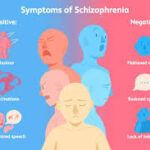A groundbreaking study published in Nature has revealed recurring “toxic” human conversation patterns on social media platforms, transcending platforms, topics, and time periods. Led by the Center for Data Science and Complexity for Society at the Department of Computer Science, Sapienza University of Rome, in collaboration with City, University of London and the Institute of Complex Systems, CNR, Rome, the study sheds light on the persistence of toxic interactions in digital communities.
The research, which employed a comparative approach across eight social media platforms spanning over 34 years, examined critical factors contributing to the prevalence of toxic interactions. Contrary to prevailing assumptions, the study found that prolonged conversations on social media are more susceptible to toxicity and polarization, particularly when divergent viewpoints lead to escalating disagreements.
Key findings from the study challenge existing beliefs, suggesting that toxic interactions neither deter user engagement nor necessarily escalate as discussions evolve. Instead, users actively participate in conversations despite encountering toxicity.
The dataset, comprising more than 500 million user comments across platforms such as Facebook, Reddit, Gab, YouTube, and USENET, revealed a consistent interaction between harmful content and participation in online debates. Toxicity, defined as rude, disrespectful, or unreasonable comments likely to prompt someone to leave a discussion, exhibited a complex interplay with user resilience to negativity in digital environments.
Professor Walter Quattrociocchi, Lead at the Center for Data Science and Complexity for Society, emphasized the significance of the research in understanding online social dynamics and the broad implications of algorithmic influence on social interactions. Co-author Andrea Baronchelli, Professor of Complexity Science at City, University of London, highlighted the importance of analyzing multiple platforms to isolate human behavioral patterns from platform-specific idiosyncrasies.
The study underscores the need for policymakers to comprehend the dynamics of digital environments and make informed decisions. Despite the evolution of social media platforms and shifting social norms, the study’s findings underscore the enduring nature of toxic conversation patterns rooted in human behavior.
As Professor Quattrociocchi noted, the research represents a significant advancement in understanding online social dynamics beyond individual platforms, emphasizing the crucial role of data science in deciphering online human behavior. Co-author Professor Baronchelli emphasized the importance of focusing on human nature in analyzing online interactions, shifting the spotlight back to who we are and how we behave in digital spaces.












